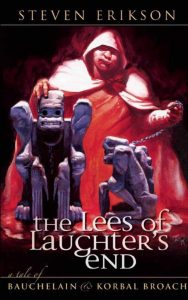 Well, this is incredibly annoying.
Well, this is incredibly annoying.
As you may or may not be aware, I am deep in the guts of a reread / relisten of the Malazan books, wherein I have audiobooks for the ones I already read once (which is four-fifths of the original ten book series) and physical books for the ones I never read before or didn’t yet get to. I am doing this by publication date, partly because researching a series chronology is potentially spoiler-laden, partly because the main series already has no truck with a strictly chronological presentation of its story, and partly because that is what the authors of the world recommend. Fine then.
Except, I just read The Lees of Laughter’s End, the second story in the three story collection of the tales of Bauchelain and Korbal Broach (a probably evil wizard/theoretical necromancer and a completely amoral (in the literal sense) eunuch/practical necromancer), only to realize when I was pulling up Amazon to find a cover picture for the standalone book that it is the third story in publication order, even though it starts off merely days or weeks after the first one, Blood Follows, ended. Which is an understandable way to order a story collection, fine, but I clearly was not paying close enough attention to what was going on when I picked up the book and just started reading on the page after I’d left off. (Notably, this would have been even more likely / harder to deal with if I’d had it in electronic form.)
So much for doing a thing right.
Anyway. I think this may be the first Malazan book I haven’t really cared for. Here are a scattershot list of reasons why.
- The biggest one is ironically a strength of the series. It starts off res in the media of a really bad night on a ship bound for… you know, I have no idea where they were going? I suppose I know where they ended up, but that’s in dim and distant future from now. But my point is, things start happening fast and furious, and where a book or in some cases a series can benefit from in media res storytelling because you have time to ponder and cogitate and assemble pieces of the puzzle for yourself, a novella does not afford you that luxury. By the time things started being spelled out for me, the story was nearly over and I’d spent 80% of my readthrough confused. Whereas a couple of hours out of a book, or a lot of hours out of a massive series, that’s not nearly so bad. More time to care what’s going on now that it makes sense.
- I also usually like a good comedy of errors, and I think I know why I didn’t like this one. The reason a comedy of errors works, structurally, is because all these horrible, blackly funny things are happening to people you care about. All of the new characters in this one, okay, I did like them a little, but I was too busy being confused (see above) to really latch onto any of them; and as for the three main characters, I like one, appreciate one, and am completely creeped out by one. This is not the recipe for a successful iteration of the genre.
- Right in the middle of the story, there is an inadvertent crime against one of the bit characters by one of the main characters. It was not preventable, and nobody was at fault[1]. It was exactly the kind of fluke occurrence that fits right into a comedy of errors. Only, I’m really zero percent comfortable with this particular type of crime, played for laughs probably ever, but triply so when written by a male author and where the victim is female. The more I think about it, the less sure I am that I will continue to read these offshoots. But it’s long enough between now and the previous one that I will be reading next, because sigh, that I’ll probably make another attempt. Still, though.
- It’s really the “for laughs” that is crushing to me, because without that tone… What worked about the first book is that it was all from the perspective of the necromancers’ manservant, Emancipoor Reese, who has a very Edd Tollett[2] outlook on life. Everything was either happening to him, or through his lens, and that kind of comedy I can get behind. This was more, look how zany and also legitimately bad but in a zany way things can get, and Reese was involved in maybe 20 percent of the events, and mostly his bits were what was good, but I just cannot with my point 3. I was wrong that the first point was the biggest problem after all.
Yeah. This is a book that is nowhere near good enough to justify how problematic it also is. It has not soured me on the original main series, but on its own merits I strongly disrecommend it, and it may well have soured me on this side series.
[1] Because magic, basically.
[2] A member of the Night Watch in GRRM’s A Song of Ice and Fire Series. If you get it, you get it.
 I went to see the fourth Avengers movie on Friday afternoon, right after work and thusly before it was feasible that my on-call duties this weekend would interfere. (As it turns out, it has been non-stop smooth sailing, but I had no way to guess that then.) Obviously I can’t talk about the movie, because, well, you know.
I went to see the fourth Avengers movie on Friday afternoon, right after work and thusly before it was feasible that my on-call duties this weekend would interfere. (As it turns out, it has been non-stop smooth sailing, but I had no way to guess that then.) Obviously I can’t talk about the movie, because, well, you know.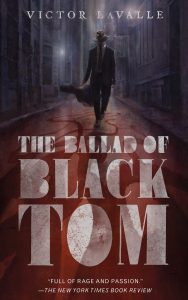 As a part of the ongoing series, Chris Reads Books Years Past When People Were Recommending Them, sponsored in this case by Tor who had the ebook on offer for free a few months ago, I present: a review of
As a part of the ongoing series, Chris Reads Books Years Past When People Were Recommending Them, sponsored in this case by Tor who had the ebook on offer for free a few months ago, I present: a review of 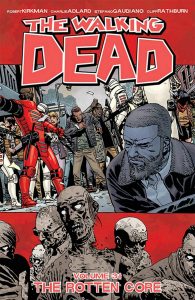 I feel bad using the horror tag by default on
I feel bad using the horror tag by default on 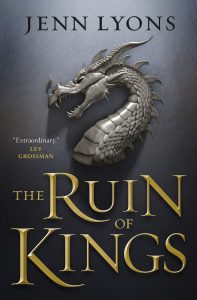 This was a strange experience.
This was a strange experience.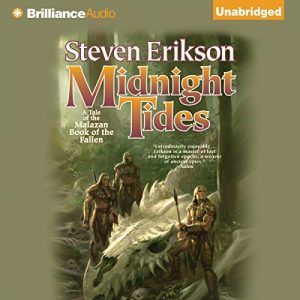 I feel like I have been listening to
I feel like I have been listening to  As foretold in prophecy[1], I have gone forth and seen
As foretold in prophecy[1], I have gone forth and seen  I’ve tried to stay away from reviews of
I’ve tried to stay away from reviews of 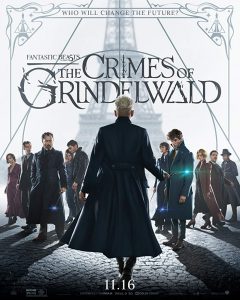 A thing to know about the Fantastic Beasts sequel is, it has no sympathy if you don’t particularly remember (or especially none if you didn’t see)
A thing to know about the Fantastic Beasts sequel is, it has no sympathy if you don’t particularly remember (or especially none if you didn’t see) 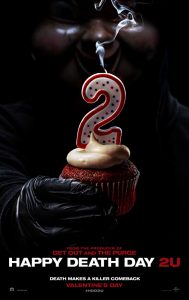 At the very beginning of
At the very beginning of